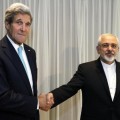By Richard Brodsky
The Netanyahu speech was smart and informative. It crystallized two parallel problems.
First, and most important: what’s the right thing to do about Iran and its nuclear capacity? There are big, big questions to be answered. Would a nuclear deal with Iran make us, Israel and the world safer than no deal? If no deal is reached, is war the inevitable next step? Is their a non-military alternative to a deal?
Unfortunately, the answers are unknowable and whatever happens will be subject to legitimate second-guessing.
The second problem America faces is to manage the domestic political impact of the speech.
Here there is greater clarity. Netanyahu has succeeded to a certain extent. He has forced a stark conversation about American self-interest, about our alliance with Israel and about the virtues and limits of military action. Our diplomatic and political alliance with Israel needs such an occasional jolt, a re-examination of what we do and why we do it.
On two other levels, the Netanyahu speech is politically problematic.
The way the speech came about was badly handled, and unnecessarily provocative, emphasis on “unnecessarily”. Sometimes a political relationship benefits from throwing cold water on our partner. It wakes everyone up. Just make sure that the shock value is worth the foreseeable anger and resentment. In this case, it’s hard to see what value was gained by ignoring protocol about accepting the invitation from Boehner. One phone call and a lot of this could have been avoided.
There is a more lasting and dangerous political consequence on the horizon. American political support for Israel has been bi-partisan and monolithic. It went beyond support for the state of Israel, it went to support for the government of Israel. Even when there were private questions, in and out of the Jewish community, there was little organized challenge to government policies. There is, indeed, more open criticism of the Israeli government in Israel then there is in the United States.
From now on, American criticism of Israeli policies will be much more visible that it has been. Not just on Iran, but on settlement policy, citizenship issues and the role of the observant religious community. The Netanyahu speech hasn’t created dissent and disagreement. It brought it existing divisions, long papered over, out into the open. And that will inevitably continue.
This is likely to weaken Israel in the long run, by elevating policy arguments when fundamental security questions arise. It’s not that Netanyahu intended this result, it’s that it was an easily foreseeable consequence of the way the speech came about, and an apparent lecture by a foreign leader on how to define American self-interest. A united front has been turned into a fractious coalition, and that’s a danger that he ought to have avoided.
The stakes are momentous. It may be that Netanyahu was right to precipitate a crisis. Maybe not. But the long-term security of Israel, the United States and the world is more important than one speech and even one controversy. Too much is unknowable.
Richard Brodsky is a former 14-term New York State Assemblyman from Westchester and Senior Fellow at Demos. Follow Richard Brodsky on Twitter: www.twitter.com/richardbrodsky
The views and opinions expressed are solely those of the author do not necessarily represent those of The Bronx Chronicle, its staff, or contributors.
Mr. Brodsky’s column originally appeared on the HuffingtonPost and reprinted with the author’s permission.

















Follow Us